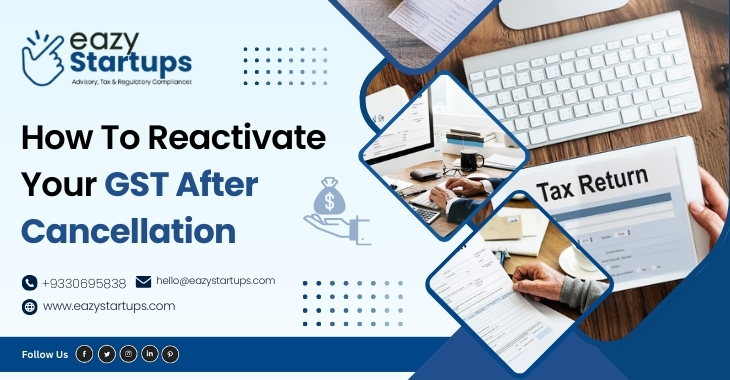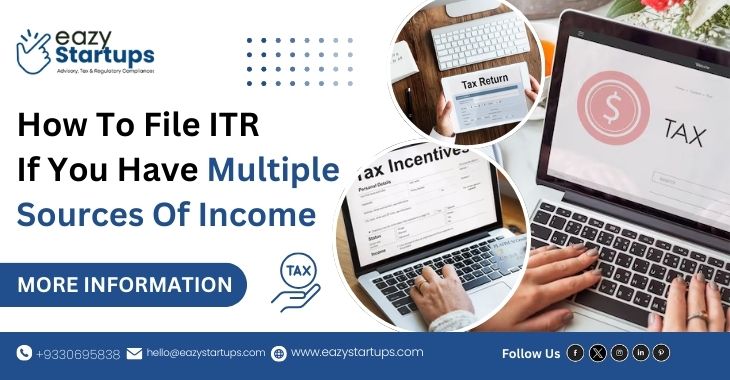Have you ever thought about how Income Tax Registration affects your financial credibility? If you believe taxes are just an obligation, think again! Registering for income tax isn’t just about following the rules—it’s about building a strong financial foundation that helps you in countless ways.
Let’s explore how this simple step can greatly affect your financial credibility:-
1. Boosts Your Financial Reputation
2. Makes Loan Approvals Easy
3. Increases Your Creditworthiness
4. Encourages the Growth of Businesses
5. Prevents Legal Troubles
6. Makes International Exchanges Simple
7. Expands Your Prospects for Investing
8. Makes Government Benefits Available to You
9. Offers Long-Term Financial Security
Boosts Your Financial Reputation:
Registering for income tax shows that you are a responsible earner. Banks, financial institutions, and consumers consider this a sign of dependability. Whether you are an independent contractor, employee, or business owner, having a tax record increases your confidence in your financial status.
Makes Loan Approvals Easy:
Are you ready to buy a house, start a business, or take a personal loan? Lenders always check tax records before making a loan offer. Having a clean income tax history makes getting loans with favorable terms and higher interest rates much easier. Your application might not even be considered if you are not registered for taxes.
Increases Your Creditworthiness:
Credit scores are crucial for financial stability. You may develop financial discipline and keep track of your earnings by filing income tax returns regularly. Credit agencies use this information to assess your creditworthiness. Your prospects of getting credit cards, business capital, and other financial aid are increased if your tax record is spotless.
Encourages the Growth of Businesses:
For business owners, filing income taxes is a game-changer. Clients, investors, and partners favor businesses that comply with tax laws. Large companies and many government contracts deal only with registered entities. Tax compliance makes access to growth and new opportunities possible.
Prevents Legal Troubles:
Failing to register for taxes can lead to penalties, fines, and even legal issues. Governments that carefully monitor incomes may pay attention to unregistered income. In addition to keeping you safe from legal danger, maintaining tax conformity ensures a stress-free financial future.
Makes International Exchanges Simple:
If you deal with overseas clients or investors, having a tax registration makes transactions easier. Many global firms require the appropriate tax documentation before they may conduct business. Without it, you risk missing out on significant opportunities.
Expands Your Prospects for Investing:
Do stocks, real estate, or other financial assets appeal to you as potential investments? Several investment platforms require tax documents to accept high-value deposits. When you register for income tax, you have more access to options for financial planning and possibilities to grow wealth.
Makes Government Benefits Available to You:
Governments offer a variety of benefits, deductions, and incentives to taxpayers. These benefits, such as employer subsidies, health insurance claims, or pension plans, are easier to get if you are a registered taxpayer.
Offers Long-Term Financial Security:
Enrolling in income tax is about safeguarding your future, not just today. If you have a correct tax record, you can build savings, contribute to retirement programs, and plan for long-term financial stability. It’s a tiny step that eventually yields significant benefits.
Final Thoughts
Income Tax Registration is not just a legal formality—it’s a powerful tool to build and protect your financial credibility. From securing loans to growing your business, from making investments to ensuring a stress-free future, tax compliance plays a vital role in every financial decision. If you haven’t registered yet, now is the time to take that step! If you need help for Online Income Tax Registration, contact Eazy Startups. So, what’s stopping you? Secure your financial future by registering for income tax today!











Recent Comments